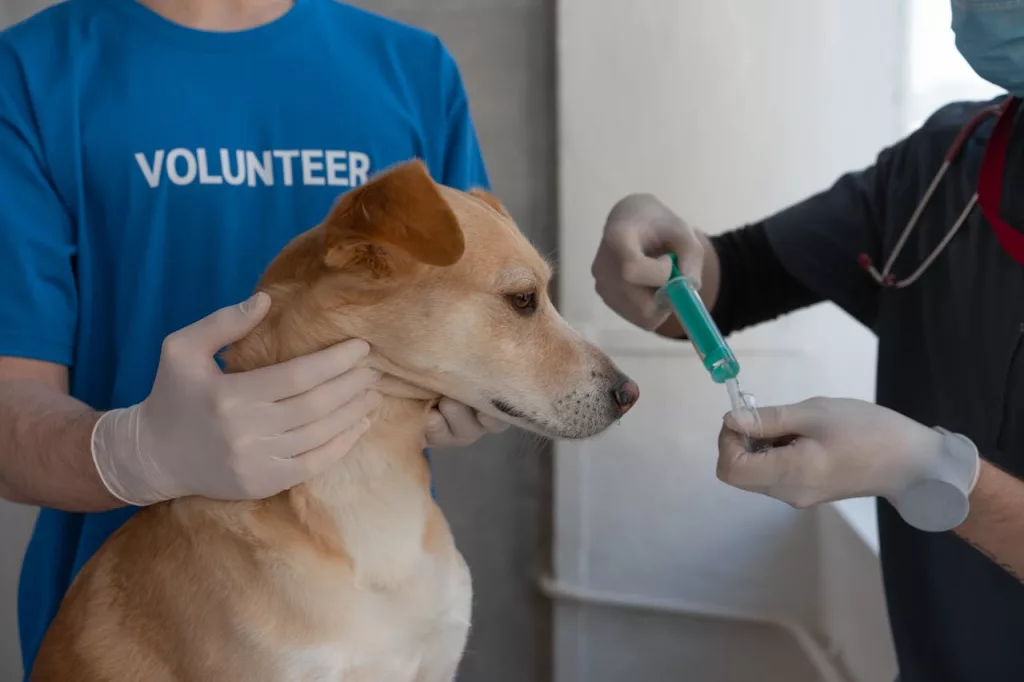Bringing a new pet into your home is an exciting and joyful experience, but it also comes with responsibilities, including ensuring your furry friend is healthy and protected. Vaccination is one of the most critical steps in safeguarding your pet from potentially life-threatening diseases. Whether you’re adopting a puppy, kitten, or any other young animal, here’s a comprehensive guide to the most important vaccines your new pet needs.
Why Vaccines Are Essential
Vaccines prepare your pet’s immune system to fight off dangerous infections by exposing them to harmless components of viruses or bacteria. This immunity protects not only your pet but also reduces the spread of diseases to other animals and humans (in the case of zoonotic diseases).
Vaccines for Dogs
When adopting a puppy or dog, certain vaccines are considered “core” (essential for all dogs), while others are “non-core” and depend on factors like location, lifestyle, and exposure risk.
Core Vaccines for Dogs
- Rabies Vaccine
- Why It’s Important: Rabies is a fatal viral disease that can spread to humans. Most regions legally require this vaccine.
- Schedule: First dose at 12-16 weeks of age, followed by boosters every 1-3 years, depending on local laws.
- DA2PP/DHPP (Distemper, Adenovirus, Parvovirus, Parainfluenza)
- Why It’s Important: Protects against several deadly diseases:
- Distemper: Affects the respiratory, digestive, and nervous systems.
- Adenovirus: Causes hepatitis.
- Parvovirus: Highly contagious and often fatal gastrointestinal disease.
- Parainfluenza: Contributes to respiratory infections.
- Schedule: First dose at 6-8 weeks, then every 2-4 weeks until 16-20 weeks old. Boosters annually or every three years.
- Why It’s Important: Protects against several deadly diseases:
Non-Core Vaccines for Dogs
- Leptospirosis Vaccine
- Protects against bacteria that can cause kidney or liver damage and is transmissible to humans.
- Bordetella (Kennel Cough) Vaccine
- Recommended for dogs that frequent boarding facilities, dog parks, or grooming salons.
- Lyme Disease Vaccine
- Recommended for dogs in areas with high tick populations.
- Canine Influenza Vaccine
- Protects against canine flu, especially in multi-dog environments.
Vaccines for Cats
Like dogs, cats also have core and non-core vaccines based on risk factors. Vaccination is critical for both indoor and outdoor cats, as some diseases spread through the air or indirect contact.
Core Vaccines for Cats
- Rabies Vaccine
- Why It’s Important: Required by law in many areas and protects against a fatal disease transmissible to humans.
- Schedule: First dose at 12-16 weeks, followed by boosters as required by local regulations.
- FVRCP (Feline Viral Rhinotracheitis, Calicivirus, Panleukopenia)
- Why It’s Important: Covers three major feline diseases:
- Rhinotracheitis and Calicivirus: Causes respiratory infections.
- Panleukopenia: Often fatal, similar to canine parvovirus.
- Schedule: First dose at 6-8 weeks, then every 3-4 weeks until 16-20 weeks old. Boosters annually or every three years.
- Why It’s Important: Covers three major feline diseases:
Non-Core Vaccines for Cats
- Feline Leukemia Virus (FeLV) Vaccine
- Recommended for kittens and cats that go outdoors or live with FeLV-positive cats.
- Chlamydia and Bordetella Vaccines
- May be recommended for cats in shelters or catteries.
Vaccines for Other Pets
If your new pet is not a dog or cat, consult your veterinarian for species-specific vaccination recommendations. For example:
- Rabbits: Vaccines for Rabbit Hemorrhagic Disease Virus (RHDV).
- Ferrets: Distemper and rabies vaccines.
- Horses: Vaccines for West Nile Virus, Equine Influenza, and Rabies.
Vaccination Schedule and Tips
- Start Early: Begin vaccinations as early as 6-8 weeks of age, following your vet’s recommended schedule.
- Complete the Series: Booster shots are essential for full immunity, so ensure your pet completes the initial series.
- Annual Check-ups: Regular vet visits help ensure your pet stays up-to-date on their vaccines.
- Keep Records: Maintain vaccination records for boarding, travel, or emergencies.
What to Expect After Vaccination
It’s normal for pets to experience mild side effects such as soreness at the injection site, lethargy, or a mild fever. Severe reactions are rare but require immediate veterinary attention. Watch for:
- Swelling of the face or limbs
- Difficulty breathing
- Persistent vomiting or diarrhea
Final Thoughts
Vaccinating your new pet is one of the most important steps in ensuring their long-term health and happiness. With the guidance of your veterinarian, you can create a vaccination plan tailored to your pet’s needs, lifestyle, and local disease risks.

